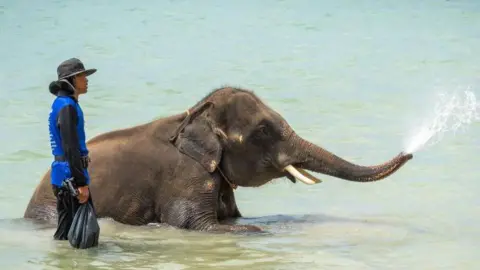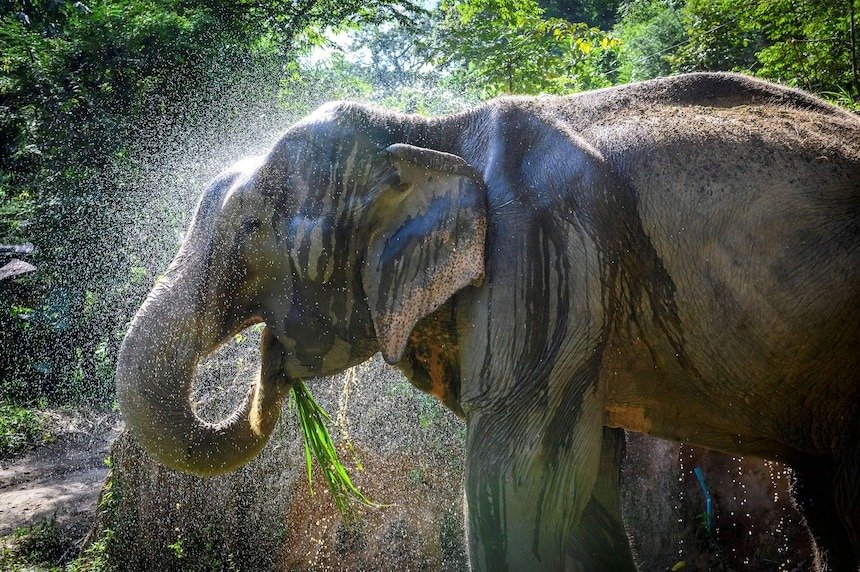Thai authorities have taken legal action against a mahout following a tragic incident in which a Spanish tourist lost her life due to an elephant under his supervision. Theerayut Inthaphudkij, aged 38, faces charges of negligence leading to death, as confirmed by local officials on Monday. This unfortunate event occurred last week when 22-year-old Blanca Ojanguren García suffered a severe head injury after being pushed by the elephant while she was engaged in bathing the animal. Despite being rushed to the hospital, she succumbed to her injuries, prompting a renewed scrutiny of the elephant tourism sector in Thailand.

the Risks of Wildlife Encounters
The incident has reignited discussions surrounding the ethical implications of elephant tourism, which has faced criticism from animal rights advocates for being both dangerous and exploitative. Activists argue that activities such as elephant bathing disrupt the animals’ natural behaviors and can lead to physical and psychological harm. Experts have suggested that the elephant involved may have experienced stress due to the interaction with tourists, highlighting the potential risks not only to humans but also to the elephants themselves. The tragic death of García has raised alarms about the welfare of elephants in captivity, particularly in environments that prioritize tourist interaction over the animals’ well-being.

The Koh Yao Elephant Care Centre, where the incident took place, is one of many establishments in Thailand that feature elephants for tourist activities. According to estimates from the international charity World Animal Protection, there are nearly 3,000 elephants in various tourist attractions across the country. Organizations like People for the Ethical Treatment of Animals (PETA) have voiced strong concerns, stating that any facility allowing close human interaction with elephants cannot be considered a true sanctuary. They emphasize that such practices endanger both the animals and the visitors, calling for a revaluation of how elephants are treated in the tourism industry. Previous cases of negligence against mahouts underscore the ongoing risks associated with elephant tourism, with similar charges having been filed in the past following fatal incidents.